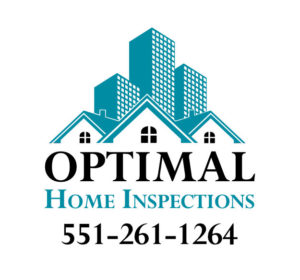Radon is a colorless, odorless, tasteless, naturally occurring radioactive gas that seeps from the soil into homes through cracks and other openings in the foundation or walls in contact with the soil.
Exposure to radon causes lung cancer. The National Academy of Sciences estimates that radon causes between 15,000-22,000 lung cancer deaths each year in the U.S. Radon gas presents one of the highest health risks we face daily.
The New Jersey Department of Environmental Protection (DEP) recommends that all homeowners test their homes for radon.
Radon gas measurement is easy and should be considered by the buyer as part of any real estate transaction. At the time of the contract of sale, New Jersey law (N.J.A.C. 26:2D-73) requires that the seller provide the buyer with a copy of the results of any radon testing and information on any radon remediation conducted in the home.
A contingency clause can be included in a real estate contract to allow the buyer to have the home tested for radon and to provide for fixing the home if an elevated level of radon gas is found. Alternatively, an escrow account can be created in the contract so that the buyer can test after moving into the home and use the escrow account funds to pay for a radon remediation (mitigation) system if needed. The DEP recommends you discuss these issues with your attorney.
If you are testing a house that you are considering purchasing, you must use the services of a DEP-certified radon tester. All professionals who perform radon tests or mitigations in New Jersey must be certified. They must demonstrate sufficient education and experience, take DEP-approved courses in radon testing or mitigation techniques, and pass a written examination.
If hired by the prospective buyer, the certified radon tester must start and complete the test. No portion of the test can be delegated to the homeowner or Realtor, including mailing the test kit to the radon company. In addition, home inspectors who are not certified for radon testing may not give radon test devices to homeowners to use as part of their home inspection process.
The radon test should be done in the lowest livable level of the home—that is, the lowest level that is used or could be used as a living space. This would include, for example, an unfinished basement but not a crawl space.
Opening windows or doors that let in outside air (other than for normal entering and exiting the home) during a test can cause misleading results and make the test invalid. Depending on airflow, the test results may be higher or lower than the true concentration. If the test is less than four days in duration, windows and doors must be closed for an additional 12 hours before the start of the test so that radon levels are stable by the start. The certified tester is responsible for notifying occupants of the importance of maintaining proper testing conditions.
If it concerns you, your test can include one or more measures against possible test interference. Consult your certified tester regarding such measures.
The DEP recommends reducing radon levels if the radon concentration in the lowest livable level of the house is four pCi/L (picoCuries per liter) or more. (A picoCurie per liter is a measure of the radioactivity in the air). This will markedly decrease the risk of developing lung cancer caused by radon exposure.
The most common method of radon gas remediation is sub-slab ventilation, which uses a fan to draw the radon gas out from below the slab or foundation, thereby preventing its entry into the house. Based on New Jersey data, this method is effective in almost every case in reducing radon gas to levels lower than 4 pCi/L. The cost is typically about $1200, though it can range from $500 to $2500.
Buyers of newly constructed homes should also test for radon after moving in. Unless specified otherwise contractually, builders are not responsible for testing or subsequent remediation of radon.
To obtain further information, including listings of certified radon measurement and mitigation businesses, contact the DEP radon information line at (800)648-0394 or visit our website at www.njradon.org.
NOTE: This article has been reposted by Optimal Home Inspections as a service to our clients. This article was edited for space considerations. For the original article, visit https://www.nj.gov/dep/rpp/radon/homebs.htm


